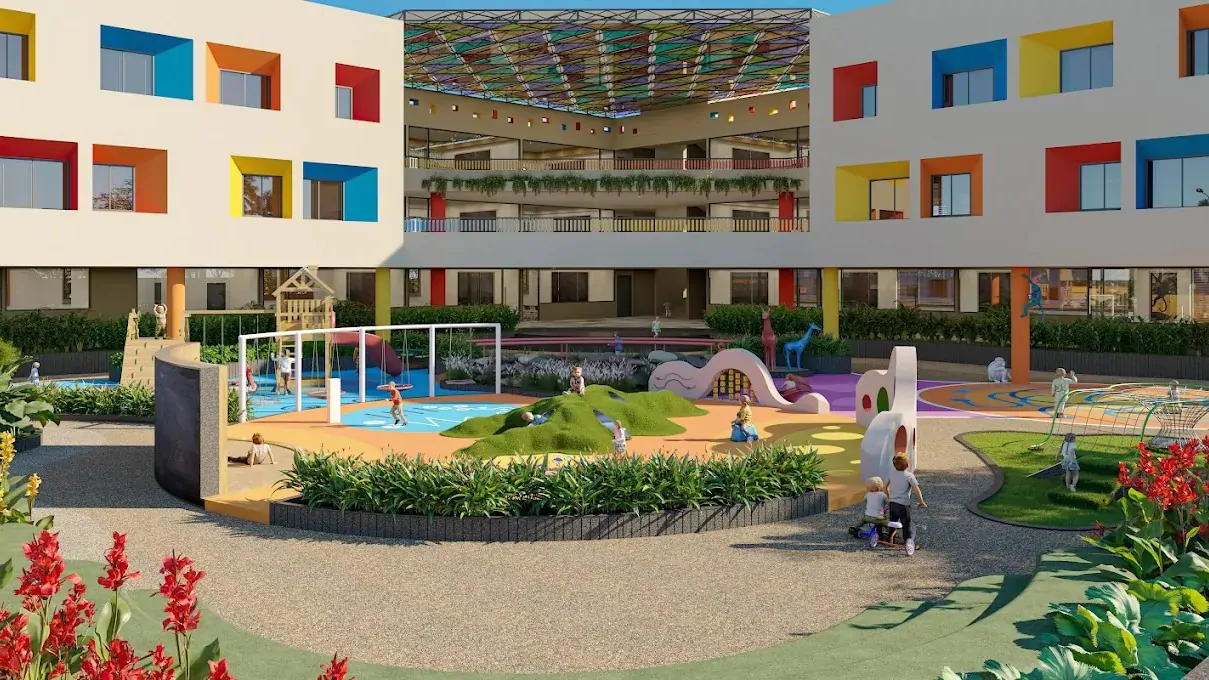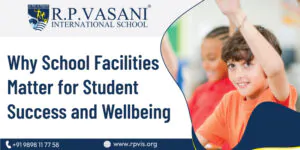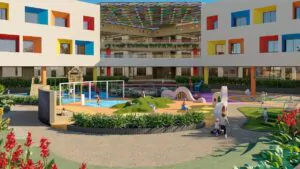The modern world faces growing environmental challenges, making sustainability a key priority for institutions worldwide. Schools, being foundational learning environments, play a crucial role in promoting eco-conscious practices. Eco-friendly and sustainable campuses not only reduce the environmental footprint but also enhance students’ well-being, instill responsible values, and create an ideal learning environment. At R P Vasani Foundation, through R.P. Vasani International School, the focus is on integrating sustainable practices into the campus infrastructure and curriculum, emphasizing the long-term benefits of eco-friendly initiatives.
Understanding Eco-Friendly and Sustainable Campuses
A campus is considered eco-friendly and sustainable when it incorporates practices, designs, and technologies that minimize environmental impact. These campuses focus on energy efficiency, water conservation, waste management, green landscaping, and promoting awareness among students. By creating such an environment, schools cultivate responsible citizens who value ecological balance. At R P Vasani International School, sustainability is part of the school’s philosophy. From building design to daily routines, eco-conscious practices are implemented to foster environmental responsibility in students.
Environmental Benefits of Sustainable Campuses
Eco-friendly and sustainable campuses significantly reduce environmental degradation. At R P Vasani Foundation, initiatives include:
- Energy-efficient buildings using solar panels, LED lighting, and smart climate control systems
- Water conservation systems like rainwater harvesting and water recycling units
- Waste management programs including segregation, recycling, and composting
- Green landscaping with native plants to improve air quality and reduce soil erosion
These practices minimize carbon footprint, conserve natural resources, and create a healthier ecosystem within and around the campus.
Health and Well-Being Benefits for Students
A sustainable campus positively impacts on student health and well-being. Green spaces, clean air, and natural lighting contribute to improved focus, reduced stress, and better physical and mental health. At R P Vasani International School, eco-friendly design elements include:
- Open green areas for recreation and outdoor learning
- Non-toxic construction materials and furniture
- Safe pathways and pollution-free zones
- Indoor air quality control with plants and ventilation systems
By integrating these features, eco-friendly and sustainable campuses provide a supportive learning environment that nurtures student growth and development.
Academic and Educational Benefits
Sustainability on campus enhances learning experiences. At R P Vasani Foundation, the principles of eco-friendly practices are incorporated into the curriculum, teaching students about environmental science, conservation, and responsible living. Examples include:
- Practical lessons in renewable energy using solar and wind projects
- Hands-on environmental experiments in biology and chemistry labs
- Waste management projects to encourage problem-solving and community responsibility
- School garden programs to teach agriculture, biodiversity, and nutrition
These activities help students apply theoretical knowledge in real-world contexts, fostering creativity, critical thinking, and ecological awareness.
Developing Responsible Citizens
One of the most significant benefits of eco-friendly and sustainable campuses is nurturing responsible future citizens. At R P Vasani International School, students learn values like:
- Respect for nature
- Responsible consumption
- Conservation of resources
- Community engagement
Through environmental clubs, eco-competitions, awareness campaigns, and field trips, children gain firsthand experience in sustainability, preparing them to lead initiatives in society and their careers.
Economic and Resource Efficiency
Sustainable campuses are economically beneficial. Eco-friendly and sustainable campuses reduce operational costs over time. At R P Vasani Foundation, cost-saving measures include:
- Use of renewable energy to cut electricity bills
- Rainwater harvesting to reduce water expenses
- Recycling and reusing materials to lower waste management costs
- Energy-efficient appliances and LED lighting for reduced consumption
These practices demonstrate the financial advantages of sustainability while educating students about resource optimization.
Technology and Innovation in Sustainable Campuses
At R P Vasani International School, sustainability is enhanced through modern technology. Examples include:
- Solar-powered buildings to harness clean energy
- Smart sensors for automated lighting and water use
- Digital classrooms that reduce paper consumption
- Interactive monitoring systems to track energy and water usage
Integration of technology makes sustainability tangible for students, demonstrating how innovation can support eco-conscious living.
Community Engagement and Awareness
Eco-friendly and sustainable campuses extend benefits beyond school walls. At R P Vasani Foundation, students participate in:
- Environmental awareness campaigns
- Community clean-up drives
- Tree plantation initiatives
- Partnerships with local organizations for sustainability projects
These activities instill a sense of civic responsibility and amplify the positive impact of eco-friendly practices.
Why Choose Us
At R P Vasani Foundation, the commitment to eco-friendly and sustainable campuses goes beyond compliance; it is a core philosophy that shapes student development. From infrastructure to curriculum, sustainability is integrated at every level. Students are educated about environmental responsibility, gain hands-on experience in green practices, and grow in a safe, healthy, and stimulating environment. Choosing R P Vasani Foundation means your child benefits from holistic education, strengthened values, and a forward-thinking approach that prepares them for a sustainable future, both personally and professionally.
Conclusion
Eco-friendly and sustainable campuses at R P Vasani Foundation provide an ideal environment for students to thrive academically, socially, and personally. From nursery to Grade 12, children experience green infrastructure, clean air, energy-efficient classrooms, and hands-on environmental education. Sustainability practices teach responsibility, resourcefulness, and community engagement while promoting well-being and academic excellence. By integrating green technology, outdoor learning, and eco-conscious curriculum, students become environmentally aware citizens ready to contribute positively to society. Choosing R P Vasani Foundation means investing in a holistic education that combines academic growth, sustainability, and a healthy, responsible lifestyle.
FAQs
What makes a school campus eco-friendly and sustainable?
Features include renewable energy, water conservation, waste management, green spaces, and environmental awareness programs
Why are sustainable campuses important for children?
They promote health, well-being, environmental awareness, and responsible habits.
How does R P Vasani Foundation implement sustainability?
Through green buildings, rainwater harvesting, solar energy, waste segregation, and eco-friendly curriculum integration.
Do eco-friendly campuses reduce operational costs?
Yes, renewable energy, water recycling, and energy-efficient systems lower long-term costs.
Can students learn about sustainability on campus?
Yes, practical activities, projects, and environmental clubs teach sustainability concepts firsthand.
Are there outdoor learning opportunities in sustainable campuses?
Yes, gardens, playgrounds, and green labs provide experiential learning in environmental science.
How do sustainable practices affect student health?
Clean air, non-toxic materials, natural lighting, and green spaces support physical and mental health.
Does R.P. Vasani International School use technology for sustainability?
Yes, smart sensors, digital classrooms, solar panels, and monitoring systems help implement eco-friendly practices.
Are parents involved in eco-friendly initiatives?
Yes, parents participate in awareness campaigns, community drives, and school sustainability projects.
What long-term benefits do sustainable campuses provide students?
They foster responsible citizenship, environmental awareness, resource efficiency, and a mindset for sustainable living.
For more insights on The Benefits of Eco-Friendly and Sustainable Campuses or related blogs, call us at +91 9898117767 or email info@rpvis.org.













